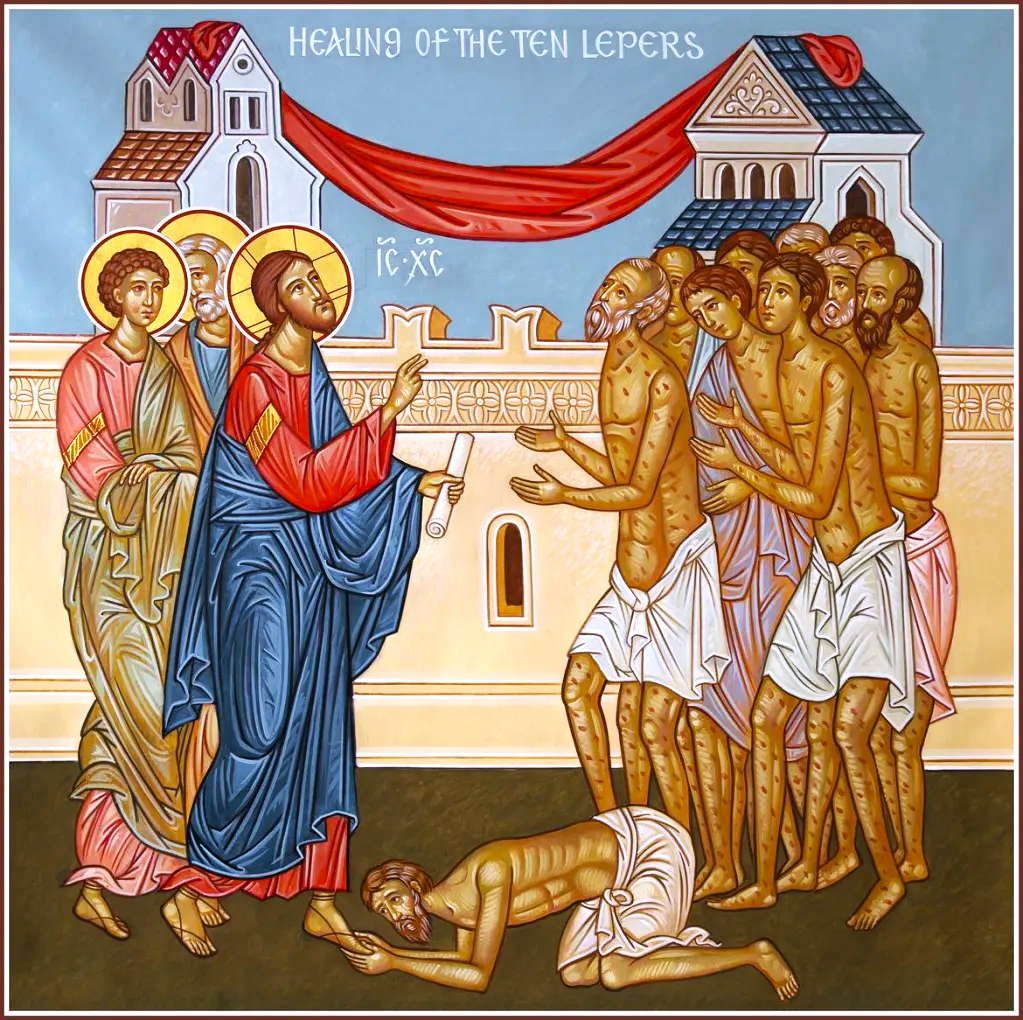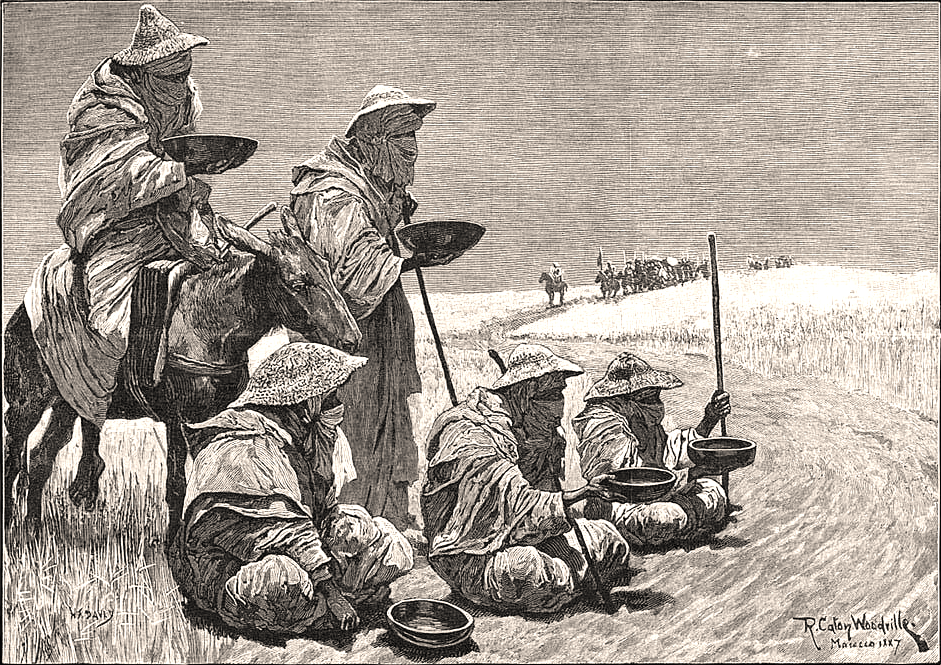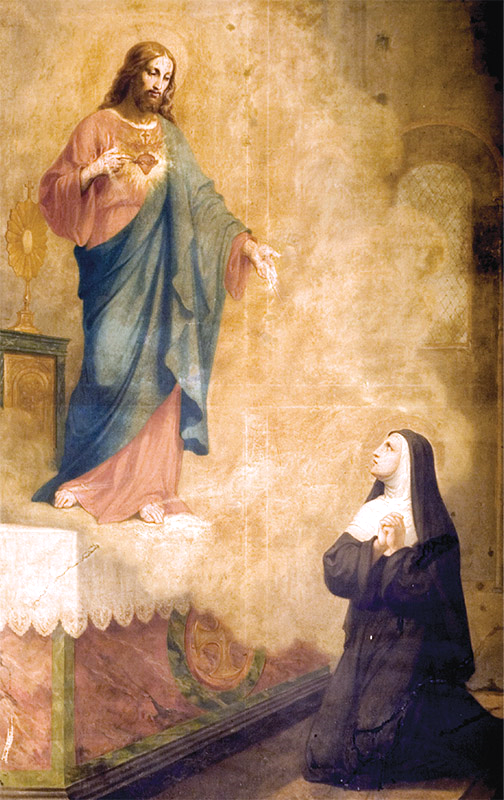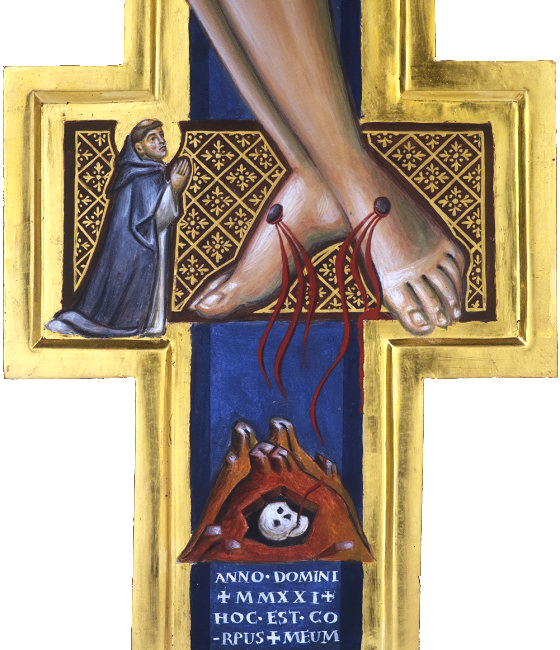Translation of the Holy Gospel According to Luke
At that time, as Jesus was going to Jerusalem, He passed through the midst of Samaria and Galilee: and as He entered into a certain town, there met Him ten men that were lepers, who stood afar off, and lifted up their voice, saying: Jesus, Master, have mercy on us. Whom when He saw, He said: Go, show yourselves to the priests. And it came to pass, that, as they went, they were made clean. And one of them, when he saw that he was made clean, went back, with a loud voice glorifying God: and he fell on his face before His feet, giving thanks: and this was a Samaritan. And Jesus answering said: Were not ten made clean? And where are the nine? There is no one found to return, and give glory to God, but this stranger. And He said to him: Arise, go thy way for thy faith hath made thee whole.
Translation of Homily Coming Soon
The Saving Words of the Gospel.
In the Name of the Father, and of the Son, and of the Holy Spirit. Amen.
Last week, the Samaritan of the parable was Our Lord, and this week in the Gospel, Our Lord is not telling a parable, but rather we have an event from history; this moment in which these 10 lepers, who were following the law of the land. The law of land was that a leper was considered unclean and therefore, incapable of worship and society. And so, in the Middle East, what they would do is outside of the town precincts, away from the road, houses would be built for lepers. And then, the lepers would all live together in a sort of anti-community, so to say, because they were a community unto themselves but denied all community. And it was always away from the road so that they could come out of the dwelling in order to beg. And so, they would beg from a distance and people would leave their donation, whatever it was, and leave it there on the side of the road so that the proper distance was maintained. And so, this is the scene.
And, you know, we see in the Old Testament this multiplicity of laws, and the laws that make somebody unclean were considered a sort of… almost like a canon law. It was not a moral problem for the Jews. It was rather a question of worship because when one has been touched by blood, or one has been touched by leprosy, one has touched a cadaver, or a woman has given birth, there is a time of uncleanness when one may not enter into worship. And so, this was not a moral problem, it was a legal matter. And the reasoning was that that which regards death, right, the spilling of lifeblood, for example, leprosy, or a cadaver itself, right, can’t come into contact with the living God because there is a certain contrariety there. He is the God of the living. And so, that was the thinking.
Certainly, with regard to the lepers, that was also something where they would have to… when somebody would see a spot of leprosy to show himself to the priest who would then determine is that leprosy or not. If it’s leprosy, he has to go live in the house. If it’s something else, then continue on your way. So that also explains why Our Lord says, Go show yourselves to the priests so that they could enter again into society and to that transitory worship of the Old Testament, which was now coming to a close.
So, this is a factual encounter. It really happened. It’s not a parable. And Our Lord reveals Himself, not as one who goes against these norms, but as the New Law itself that subsumes every previous norm and law, not in contradiction of it, but in a transformation of it, bringing it to a level at which it had never been before, because Our Lord bears the New Law within His own Blood, and when His Blood is spilled, it’s not something that makes Him unclean, it’s something that makes us clean through redemption. And so, Our Lord is, in a certain sense, He’s not turning things on their head. He’s letting those former laws reveal something about Him, and how He transcends it and fulfills it.
At the same time, we can also say that this anti-community of lepers in a house is something of a representative of all of us, alienated from Heaven, estranged from God. And all we can do is ask for help. We, estranged from God, are also incapable of worship, and nonetheless, man is made to worship. Man is a religious being.
And so, we see all of these, perhaps well-intentioned, efforts of pagans, of people who have not had or accepted the revelation of the Word made flesh, the Eternal Logos, through the Catholic Church with their own attempts at worship. And nonetheless, those are just human attempts. They don’t bring God true worship. They don’t bring Him satisfaction, because they’re just failed human attempts. Whether it’s aMuslim worship, Jewish worship, pagan, or Protestant, it’s not true worship because it’s not the Sacrifice of Christ. It’s not the spilling of His Blood in an unbloody way, as we have in the Mass. So, the Mass is the only true worship because it’s Christ, who is the priest, Christ who is the sacrifice. And that’s what makes it efficacious; that’s what makes it real. The good intention things, they’re not nothing, but they’re not true worship.
If we can compare ourselves to those lepers, we too see Christ passing and cry out asking for healing. And He hears our prayer, even when we are estranged. That’s a prayer that God will never leave unanswered. Certainly, if we’re out of grace, we cannot merit; our prayers are not meritorious. But the prayer for conversion, the prayer for assistance, divine assistance, is one that is moved, not by actual grace, but by prevenient grace and it’s precisely this prevenient grace, then, that sets us up to receive sanctifying grace through the sacraments.
Our Lord, in His charity, is moved to bring a healing to these men seeing their faith. He, in a certain sense, is freed up to shower them with all sorts of graces, not just the physical healing. There are also spiritual graces that were being showered upon them. Their faith in Him was a grace. The ability to call out to Him was a grace. The receptivity to His word was a grace. Their obedience to His Word, Go and show yourselves to the priests, that was a grace. All of these things are grace upon grace that Our Lord is showering on them. He’s so generous in His gifts, and yet only one comes back to say thank you. And Our Lord is wounded by this ingratitude.
When He appeared to St. Margaret Mary Alacoque and opened up His cloak and His chest and revealed His Sacred Heart. He said, Behold, this Heart which has loved so much and received so little love in return. And He asked for reparation. And what were the reasons for the reparation? He said sacrilege, coldness, indifference, and ingratitude.
In the Old Testament, there were various forms of Psalms, and they were not all of equal standing. The highest form of prayer in the Old Testament was called the תּוֹדָה, the todah, which is a Thanksgiving Psalm. Why was that the pinnacle of the spiritual life for the Jews? Because they understood that when we give God thanks, we are no longer merely consumerists of His gifts, but we are active participants in this relationship by giving Him something back.
And so, we no longer are just like little birds in a nest being fed, we give something back. And that something back that we give ought to be in proportion to the gift we’ve received. And so, what happens? This receiving and our grateful action of praise and thanksgiving, elevated to Him, what does that do? It fulfills the order of justice. Justice demands a response. Justice is defined as giving each His due. And thanksgiving, gratitude, is a subset of the virtue of justice, the moral virtue of justice. In justice, we give each their due. In piety, which is one of the subsets of the virtue of religion, we give God true worship, reverence, gratitude, simply gives Him thanks, thanks for His gifts. And this, then, entering into this communion, of giving and receiving, God gives / us, we receive, receiving we give Him something, what happens?
There’s a virtuous circle taking place because the more ardent, the more profound, more real our Thanksgiving is, the more our heart is disposed to receive still more graces from Him. And so, this is a virtuous circle. Of course, the maximum act of thanksgiving is, well the Greek word for thanksgiving is ευχαριστία, which might give you a hint of where this is going, right? Eucharist. So, eucharist means thanksgiving. We often don’t think of it in terms of its etymological meaning, but Eucharist means thanksgiving.
And so, this is the pinnacle of communion where God gives us, not healing, He gives us Himself. And He is the one who heals our wounds by His wounds. And so, as we receive Him in the Eucharist, we owe Him something; we owe Him gratitude. And as we give Him thanks, this relationship with Him deepens, and there ought to be exponential growth from one communion to the next, according to our gratitude.
And so, Our Lord has set it up this way. He gives us, we receive, we give back, in order to receive. In this relationship, we’re always the winners. Certainly, we come out a little better than Our Lord does, for sure, but He wants it to be that way. He wants us to be fed, He wants us to be grateful.
And so, hence the sorrow of His Heart at not seeing the due gratitude in these nine. And so, we’re presented with this outsider, this Samaritan, who received a grace, and then becomes something of a reference point for us; the one Our Lord wants us to imitate in rendering due praise and thanksgiving.
In the Name of the Father, and the Son, the Holy Spirit. Amen.
— Fr. Ermatinger




